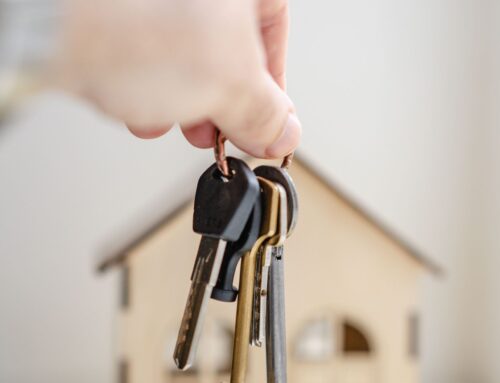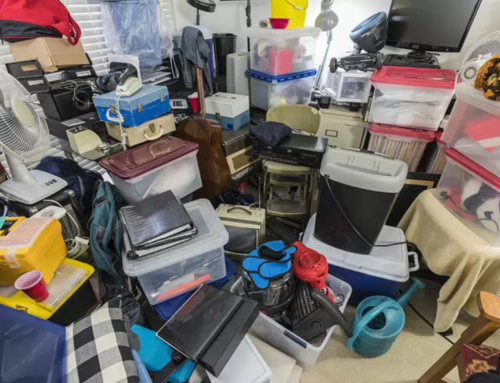If you are looking for a quick answer to this question, we can give it straight away to you. You can sell your house the next day after buying it.
We wouldn’t have jumped into more details if we knew this was a smart financial move. Before you start posting an ad online, consider the monetary loss you will be faced with if you rush things.
There is a reason why most homeowners stay in their houses for 10-15 years before selling them. They want to build equity so that house prices rise exponentially over the years.
Unfortunately, some don’t have the luxury of waiting and need to get rid of property soon after buying it.
But does that mean incurring loss for paying capital gains taxes and mortgage prepayment penalty, among other burdens? Keep reading to find out.
Reasons Homeowners Sell Sooner
In real estate, a professional home flipper would purchase a property, renovate it, and sell it fast. Unlike regular homeowners, they don’t buy property for profit but to live there with their families.
There are occasions when buyers urgently need to sell a house after buying it. Obviously, it isn’t due to some house-related issues but personal circumstances.
Job Relocation
It is not uncommon for people to relocate due to a job opportunity in a different city. Buying another house in a new place is undoubtedly enticing, but maintaining two properties can become financially impossible.
Successful career growth definitely prevails over keeping a house, especially when it is a once-in-a-lifetime opportunity.
Closing Costs and Taxes
The typical portion of closing costs is about 5%-6%. In addition, there are property taxes of about 1%-2% (depending on the state).
No wonder a decision to sell a house after buying it is attributed to unaffordable expenses. Some areas in the US have rising taxes, while the property’s initial investment wasn’t little either.
The housing market tends to fluctuate; sometimes, homebuyers can’t predict all the money they will be paying.
Bad Purchase
Purchasing a house is a big decision that involves significant sums of money and days of preparation. Even though it is one of the most important purchases in a lifetime, mistakes happen.
Homebuyers may miscalculate or misevaluate the amount of space available in a house. This means that a property may end up being too small or big for their needs.
Bad Location
Homeowners spend many hours investigating a house and may overlook its location. Your needs and expectations may change once you move into your new house.
Although it’s a rare situation, it can happen and make homebuyers sell quickly soon after they pay the closing costs.
Financial Problems
It can be a family member falling sick or a company going bankrupt that forces homeowners to sell even after owning a house for mere weeks.
The inability to pay taxes, mortgage payments, and house-related expenses can force a family to sell a house quickly.
Hot Seller’s Market
The last reason homeowners sell a house soon is a positive one. They want to take advantage of a growing market and make a profit. Even a year can be enough to build equity and sell a house for a substantially higher price than initially paid.
For instance, if somebody has owned a house from 2019-2020, the real estate market value has increased by now. Your area may be the one with profitable prices to sell, too.
How Soon Can You Sell a House after Buying It and Not Lose Money?
Selling a house right after purchasing it is possible. However, some financial risks may be involved. This is because when you buy a house, it takes time to build equity. A positive appreciation rate also affects a selling price; the longer you wait, the more the house value increases.
For example, the closing costs you pay cannot be compensated, not to mention the selling costs involved.
As a rule, it is wise to wait at least two years before selling. The equity you build for two years should be enough to cover the selling costs you’ve paid initially. The two-year period is actually chosen on purpose to benefit you – we’ll come back to this matter later.
There is also a break-even point – a period when you can sell your property and reimburse the money you invested in it in the first place.
What Is a Breakeven Point, and Why Does It Matter?
A break-even point is a point of time when you can sell a house without losing money. This means you can actually recoup your money invested when purchasing a property.
Waiting a bit is worth your time because you pay off your mortgage and, in turn, build equity. The real estate market value changes, and you don’t want to miss the opportunity when your house’s value doubles. Nothing terrible will happen if you sell your house before it happens – it is just the amount of money you make in profit that might be exponentially lower.
When Is It Profitable to Sell a Property Fast?
If you cannot wait two years and need to sell your property sooner, you need to do some calculations. There are a lot of factors and expenses you should include. When selling quickly, there will be financial losses, and the estimated calculations will show how much your house is worth at the moment.
Figure Out the Fair Market Value
Analyzing a market will help you understand how much the properties are worth in your area. It will also give you an idea of how much you can potentially earn or lose.
If you sell on your own, hire an appraiser. This expert will evaluate the market value of your property.
If you sell with a real estate agent, this professional can also give you an estimate based on the condition of your home, its location, and the current market.
Subtract Closing Costs
Now, you know the projected sale price and know where you stand. You can compare your purchase price to determine whether you gain or lose money on selling quickly.
It is time to include other costs, specifically buyer and seller closing costs.
Buyer Closing Costs
Buyer closing costs usually range between 2%-5%. You can also look into your settlement statement to see how much you’ve paid for your house.
Consider a situation where a buyer may ask you to cover closing costs, fully or partially.
Seller Closing Costs
The seller’s closing costs are higher than the buyer’s, reaching 8%-10%. As a seller, you will have to pay commission costs and, perhaps, a part of the buyer’s closing costs. It can be another 5% of the house’s selling price.
Typically, expenses are spent to cover fees and taxes, including:
- Agent’s commission
- Title insurance
- Escrow fees
- Attorney’s commission
Subtract Seller Prep Costs
Even if you have lived in your new home for a while, you might want to prepare it before a potential buyer walks in. Cleaning, painting, and attending to a garden or lawn costs money.
You should also include moving costs. You will have to empty the house as soon as somebody else signs a contract with you.
Subtract Mortgage Payoff Amount
Another critical factor you should take into consideration is your monthly mortgage payments. Owning a house for a year or two means you’ve most likely been paying the interest rate, not the mortgage principal.
The situation is different if you pay significant mortgage payments each month. There is a chance that the equity that you’ve built so far can cover the selling costs.
Another thing to remember is that you should count the value increase of your house from the time you started owning it.
Possible Extra Expenses
Preparation and closing costs aren’t the only expenses you may face. There can be other costs you will need to cover because of selling a house right after buying it.
Mortgage Prepayment Penalties
If you plan to pay off your mortgage loan sooner than agreed, you may be paying mortgage prepayment penalties. What it means is that the lender charges you a fee for paying earlier. This is because the long-term mortgage payment was in their interest – however, now they may suffer a financial loss on some of the interest payments.
The penalty isn’t substantial; it usually ranges between 2% and 5% of your mortgage balance.
Make sure to check your agreement with the lender. Not every agreement includes this clause.
Capital Gains Taxes
We’ve mentioned before that the optimal waiting time is two years. This is because of the Two-Year Ownership and Use Rule. The nature of this rule is to live in your primary residence for no less than two years to be exempt from paying capital gains taxes.
In case of a natural disaster, death, or unemployment, homeowners can also move out and sell a house without paying capital gains taxes.
In other cases, you will have to pay capital gains taxes on the profits of your sale. We recommend consulting with a tax professional to evaluate your case.
Negative Buyer Perception
This consequence of selling your house right after buying leads to no financial loss. Negative perception occurs when potential buyers find it suspicious that you sell your property quickly (sometimes for a low price). They may believe there is a significant problem you’re trying to hide. Or maybe an issue with the location made you sell your house so soon.
In this case, you need to state a valid reason why you are selling. Let your buyers know that you need to relocate or you need immediate investment.
What Are the Benefits of Selling Fast?
If there is no personal problem that forces you to sell, there can be another reason that motivates this decision. Most of the time, homeowners realize a house’s potential to make a significant profit in a short amount of time. Other reasons are:
- You have bought your house as a foreclosure. And now, you can sell it for what it really is worth.
- You have added value to your property and substantially increased its selling price.
- The home values in your neighborhood have exponentially increased, making it good timing to sell.
What If There Is No Time to Wait?
It can be an urgent matter to sell your house. Financial experts advise waiting, but there may be no time to waste. Highest Cash Offer may have something for you if you need money right away.
You might be surprised to find out that with Highest Cash Offer, you don’t need to hire a real estate agent and spend a fortune advertising your property.
In addition, you pay zero closing costs and don’t have to hire an appraisal expert to evaluate your property. Our real estate specialists do it themselves and take care of all the technicalities.
What can you expect from selling with Highest Cash Offer?
- First of all, we close fast. The process is straightforward and involves little work from your side.
- Secondly, you will have our full support during the process. We guarantee you hassle-free cooperation. And if you have any concerns, they will be immediately resolved.
- Thirdly, our negotiation is based on your expectations and house condition. We offer you a price based on our initial conversation. And only when you agree on a price do we evaluate your house and pay you cash after formalities are completed.
- Lastly, if your house has a roof, plumbing, or flooring issue, it makes no difference to us. At Highest Cash Offer, we purchase houses as-is. This means you don’t have to fix it and invest money in renovations. Even cleaning is unnecessary.
If that’s something for you, call (888) 387-5750 to discuss further details.
Conclusion
You can sell your house any time after you’ve paid the closing costs. But will it be without financial loss? Unlikely. You should wait a bit longer to build enough equity to gain as much profit as possible.
We understand that sometimes there is no time to waste, and you might need money urgently. For cases like that, Highest Cash Offer can be a suitable option for you.
Sell your house fast and leave all the paperwork to us. There are no closing costs and no hidden expenses. Highest Cash Offer offers a competitive price for your house and pays you in cash even within seven days.
You’re in luck if you are looking for a straightforward way to sell your house without overpaying a real estate agent. With Highest Cash Offer, you can sell your house as-is in a short time.








 Highest Cash Offer is a real estate solutions company. Our team of experts specialize in assisting homeowners with a wide variety of solutions to any real estate problem. Whether we buy your house for cash or not, our goal is to help you get the desired outcome you deserve.
Highest Cash Offer is a real estate solutions company. Our team of experts specialize in assisting homeowners with a wide variety of solutions to any real estate problem. Whether we buy your house for cash or not, our goal is to help you get the desired outcome you deserve.